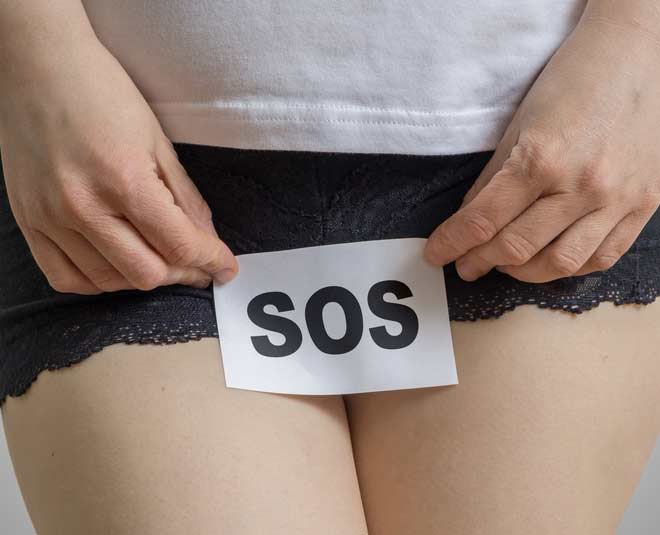
Vaginal dryness is a defining feature of the menopausal genitourinary syndrome, commonly known as atrophic vaginitis or vaginal atrophy. Half of postmenopausal women aged 51 to 60 suffer from vaginal dryness. Because of the normal fall in your body's estrogen levels throughout menopause, vaginal tissues become thinner and more readily inflamed.
Dr. Astha Jain Mathur, Consultant Obstetrician & Gynaecologist, Motherhood Hospitals,Indore, Madhya Pradesh, told HerZindagi that "this problem is quite unpleasant and can make your vagina feel dry, itchy, or burn, which can bepainful during sexual intercourse. You may also need to pee more frequently than normal, or you may suffer from persistent urinary tract infections (UTIs). When you urinate, vaginal dryness might cause some discomfort."
Here is a low down by Dr. Mathur on the same.

The average age of menopause is 51, and postmenopausal women, observe that their bodiestransform. The ovaries discontinue generating the feminine hormone estrogen, and its levels begin to fall. Reduced lubrication during sexual activity is one of the first indications of estrogen deficiency in the vagina.
The skin and support tissues of the lips (vulva) and vagina grow thinner and less elastic withoutestrogen release, and the vagina may become dry. Around half of all postmenopausal women suffer from vaginal dryness.
Apart from menopause, there are various new factors that contribute to vaginal dryness, including:
Vaginal dryness can have an emotional impact on women. Body changes can be difficult toaccept, and the pain and discomfort produced by the condition can lead to a loss of self-esteem and sexual confidence.
Don't Miss:Myths On 'Losing' Virginity All Women Must Know
Many women also observe that their vaginal discharge changes, becoming watery,discoloured, and slightly odorous and that they may suffer discomfort and a burning sensation. These symptoms can be alarming, but they are merely the result of hormone imbalances and are not very serious.
In many situations, vaginal dryness not only causes pain during intercourse, but can alsomake it difficult to sit, stand, exercise, pee, or even work. Whether or whether a woman is sexually active, vaginal dryness can have an impact on her daily life. This can have a negative impact on one's quality of life.
Lubrication issues become more prominent after menopause. Skin thinning around the vagina causes it more prone to damage. This type of damage is common during intercourse, especially if lubrication is weak — even moderate contact can cause pain and suffering. Painful intercourse can then have a knock-on effect, adding to a lack of sexual desire.
Don't Miss:Is Postmenopausal Bleeding Normal? Symptoms, Causes, Treatment, Gynae Explains

Your doctor may advise you to use the following medications to treat vaginal dryness and painfulintercourse (dyspareunia) caused by the genitourinary syndrome of menopause. Some moisturisers, lubricants, creams, or medications help maintain healthy vaginal tissues and reduce discomfort or pain during intercourse.
Vaginal muscles weaken with time as oestrogen levels fall. Kegel exercises, for example, can assist torelax tight muscles and strengthen weaker ones. These exercises also aid in increasing blood flow to the cervix.
For further discomfort or if a woman is still having difficulty, she should see her gynaecologist. thedoctor may advise her on alternative treatment choices that may be available.
Stay tuned to HerZindagi for more on feminine hygiene and issues related to it.
Also watch this video
Herzindagi video
Our aim is to provide accurate, safe and expert verified information through our articles and social media handles. The remedies, advice and tips mentioned here are for general information only. Please consult your expert before trying any kind of health, beauty, life hacks or astrology related tips. For any feedback or complaint, contact us at [email protected].